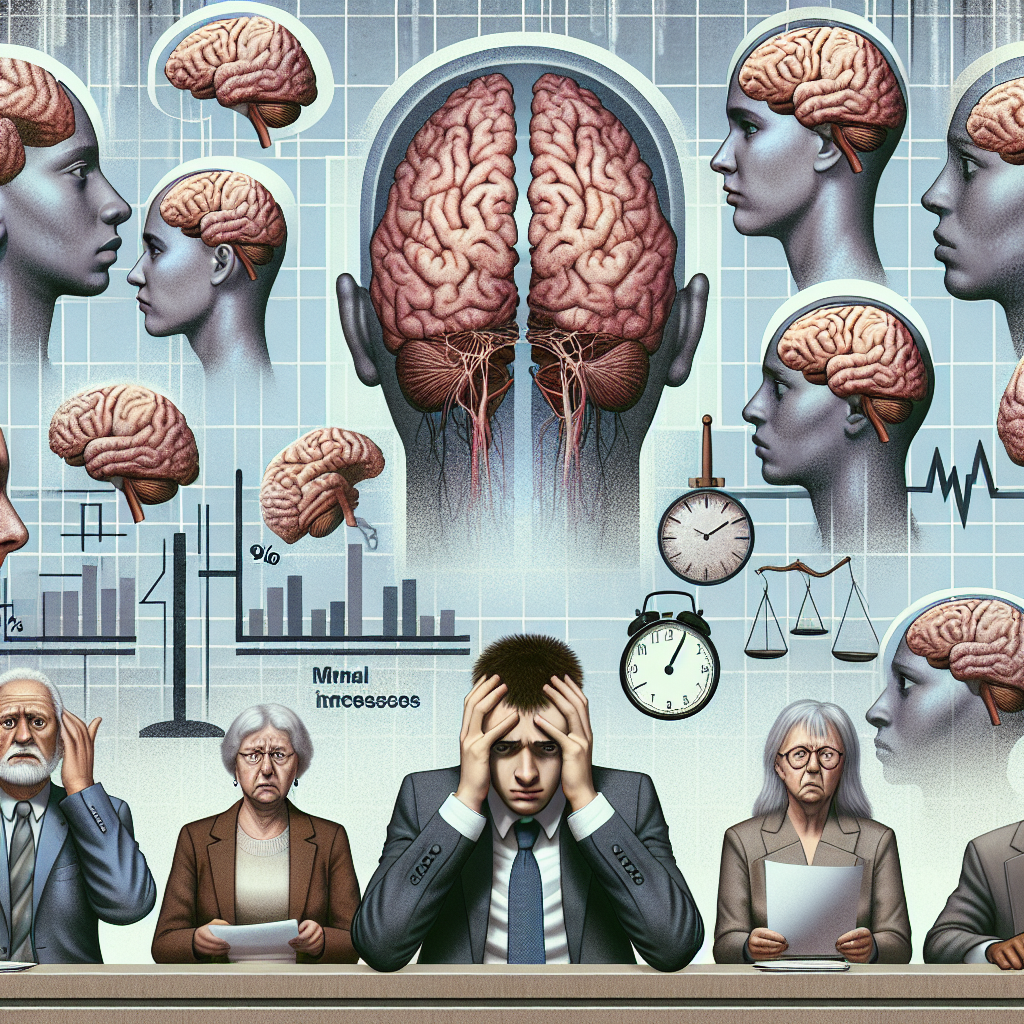
Introduction
Imagine witnessing a crime — the jarring sound of gunfire, the rush of adrenaline, and the sharp inhalation of fear. These sensory overloads can create vivid memories. But as research reveals, the impact of stress on eyewitness accounts can be deeply misleading. Eyewitness testimonies have played pivotal roles in the criminal justice system, yet they are often unreliable due to the stress under which they are formed. With the stakes so high, understanding this phenomenon is not just academic; it can alter lives and determine justice.
The Relationship Between Stress and Memory
Understanding Stress
Before delving into eyewitness accounts, let’s unpack what we mean by stress. Stress is a psychological and emotional reaction to perceived threats or challenges. It can trigger a cascade of physiological changes in the body, affecting both the mind and memory formation.
Table 1: Types of Stress
| Type of Stress | Description |
|---|---|
| Acute Stress | Short-term stress from immediate demands |
| Chronic Stress | Ongoing stress persisting over time |
| Eustress | Positive stress that can motivate |
Memory Under Stress
Memory is typically understood as a series of encoded, stored, and retrieved information. However, research shows this process is highly susceptible to the impact of stress on eyewitness accounts. Stress can enhance certain memories (e.g., emotional details) while impairing overall recall and the accuracy of information.
Chart 1: Memory Retention Under Various Stress Levels
![Chart showing memory retention under different stress levels]
High Stress: Impairs recall but may enhance the recall of the most emotionally charged elements.
Moderate Stress: Balanced effect, allowing for better retention.
Low Stress: Facilitates comprehensive recall with less focus on emotional content.
How Stress Cuts Accuracy in Eyewitness Reports
Case Study 1: The Boston Marathon Bombing
In the aftermath of the Boston Marathon bombing in 2013, many eyewitnesses reported details of the event. While some recalled the explosion vividly, their accounts varied significantly. For instance, some described the appearance of the suspect with certainty, while others reported conflicting details. A study by psychologist Elizabeth Loftus highlighted how the impact of stress on eyewitness accounts shaped perceptions, as individuals processed the event under extreme emotional distress.
Analysis: This case illustrates not just how eyewitness accounts vary but also how many details become less distinguishable under the high stress of a traumatic event.
The Weapon Focus Effect
Another crucial aspect of stress affecting eyewitness testimony is the weapon focus effect. When a weapon is present during a crime, witnesses typically focus on it rather than the perpetrator’s face. A classic experiment found that participants who observed a scenario with a gun were less able to accurately identify the perpetrator later.
Chart 2: Identification Accuracy with vs. without a Weapon
![Chart comparing identification accuracy with weapons present vs. absent]
Without Weapon: 75% accurate identification.
With Weapon: 39% accurate identification.
Emotional Responses and Memory Distortion
Fear and Distraction
High-stress environments can cause people to misremember details. When fear is prevalent, the brain prioritizes immediate survival, leading to lapses in memory formation.
Case Study 2: The 9/11 Attacks
In the wake of the September 11 attacks, many eyewitnesses described the events in great detail, but significant discrepancies were evident in the reports. Research in the following years highlighted how the emotional weight of the day created cognitive biases, leading many to confuse facts or fill in gaps with their assumptions.
Analysis: Here, we observe how stress distorted memory recall and led to widespread inaccuracies, emphasizing the influence of emotional distress on recollections.
The Role of Media in Shaping Eyewitness Accounts
The power of media cannot be overlooked when discussing the impact of stress on eyewitness accounts. Sensationalized reporting can distort public perception and even eyewitness recollections. When individuals rewatch traumatic events, either through news coverage or social media, it can reinforce (or alter) their memories, further complicating their ability to provide reliable testimony.
Case Study 3: The Trayvon Martin Case
During the trial of George Zimmerman for the shooting of Trayvon Martin, eyewitness accounts were stirred by extensive media coverage. Witnesses often adjusted their stories based on what they had seen in the media or through social discussions, converging towards popular narratives rather than their original recollections.
Analysis: This case underscores how media influences perceptions and memories differently, complicating the narratives witnesses hold.
Strategies for Reducing Stress during Testimonies
Training for Law Enforcement
Understanding the impact of stress on eyewitness accounts can lead to better practices in law enforcement. Implementing training sessions that teach officers to approach witnesses in a calm, supportive environment can enhance the quality and reliability of their testimonies.
Techniques for Witnesses
Witnesses can also be educated on techniques like mindfulness or stress-reduction strategies before they recount their experiences. This could involve relaxation techniques, such as deep breathing, to mitigate the stress response.
Conclusion
As we’ve explored, the impact of stress on eyewitness accounts is profound and far-reaching. From changing the way memories are formed to clouding factual recall, the implications are undeniable. Understanding this dynamic is crucial — not only for law enforcement but for the judicial system as a whole.
By fostering awareness of stress’s role in memory, we can reshape how testimonies are collected and interpreted, ultimately achieving a more just outcome for all parties involved. Remember, the truth has a way of revealing itself, but it often needs the right conditions to shine through.
FAQs
1. Why are eyewitness accounts often unreliable?
Eyewitness accounts can be unreliable due to stress, leading to distortions in memory. High emotional states can cloud judgment and affect recollection.
2. Does stress enhance any aspects of memory?
Under stress, emotionally charged details may become more vivid, but the overall accuracy of memory often diminishes.
3. How do law enforcement agencies ensure reliable eyewitness testimonies?
Agencies can improve reliability by creating a supportive interview environment and offering training on the vulnerabilities of eyewitness memory under stress.
4. What are some common techniques for stress reduction before giving testimony?
Witnesses can use mindfulness, breathing exercises, and positive visualization to mitigate stress before recounting their experiences.
5. Are there legal consequences for inaccurate eyewitness testimonies?
Yes, inaccuracies in eyewitness testimonies can lead to wrongful convictions or the dismissal of cases, significantly affecting the judicial process.
By understanding the impact of stress on eyewitness accounts, each of us plays a part in ensuring that justice prevails, preserving the integrity of memories for those who need their voices heard.















